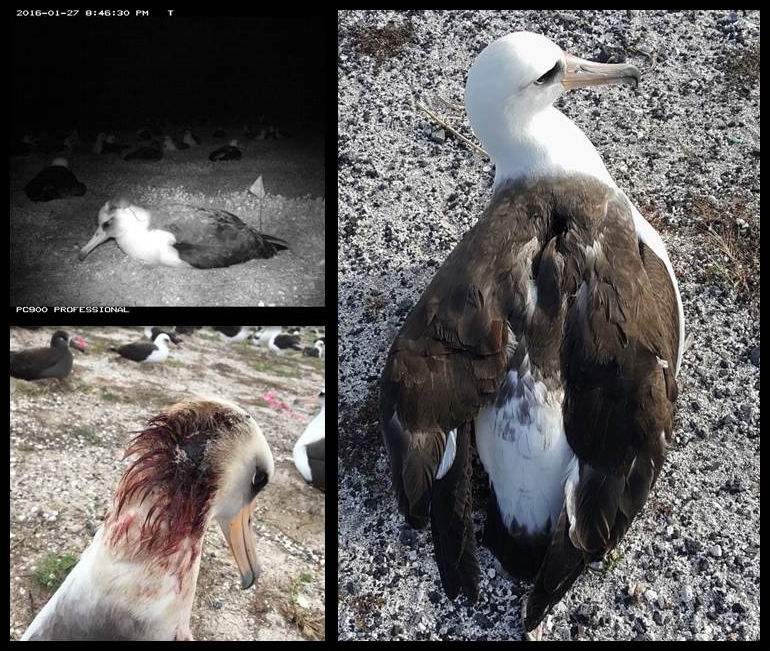Since 2015 introduced House Mice Mus musculus have been attacking breeding Black-footed Phoebastria nigripes and Laysan P. immutabilis Albatrosses (both globally Near Threatened) on Midway Atoll in the North Pacific, causing widespread injury, nest abandonment and death (click here).
Mouse attacks on Midway albatrosses during the 2015/16 breeding season, photographs by US Fish & Wildlife Service and Robert Taylor
In response the U.S. Fish and Wildlife Service has this week released a draft environmental assessment to protect the seabirds of Midway Atoll’s Sand Island from mice for public comment.
The document’s overview of the proposed action follows:
“The proposed action is to eradicate house mice from Sand Island in Midway Atoll, by delivering a lethal dose of a rodenticide to every rodent. This will involve the aerial and hand broadcast of Broadifacoum-25D Conservation, a pelleted rodenticide bait intended for conservation purposes for the control or eradication of invasive rodents on islands or vessels.
The proposed action would take place during the summer dry season, when mouse food sources are scarce and their population is typically declining. This will maximize the opportunity for mice to ingest the rodenticide.
The proposed action also includes protective measures that will help avoid or minimize any impacts to non-target species. For example, conducting the operation during the summer will minimize the risk of rain or wind washing bait pellets containing rodenticide into the ocean. Bait will not be aerially broadcast near the beaches or marine environment on Sand Island, minimizing the chance that it enters into the ocean or impacts marine species. Additionally, Broadifacoum-25D Conservation breaks down quickly in the marine environment.
Summer is also the time of year when relatively few migratory and shore birds are present – lessening the chance that they will be adversely impacted by the project. Seabirds eat at sea, not by foraging on the island and are not likely to be impacted by the treatment. However, the proposed action would take place once seabird nesting season has concluded, chicks have fledged, and before breeding season begins, minimizing the disturbance from the project to the colony.”
The draft document and information on how to submit comments (deadline 20 April 2018) can be accessed here.
John Cooper, ACAP Information Officer, 22 March 2018

 English
English  Français
Français  Español
Español 